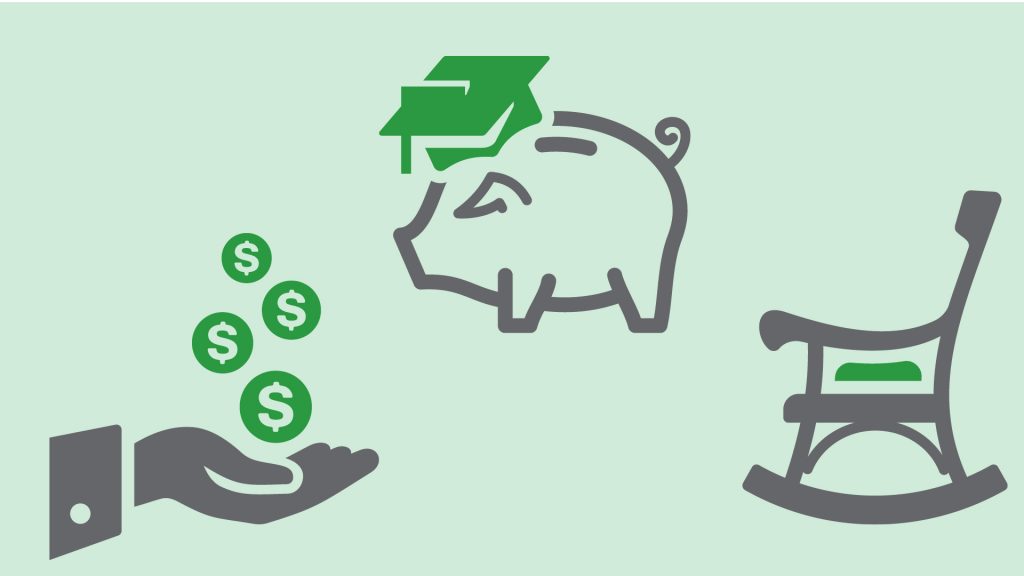
While most of us know saving money is a good idea, we often struggle to save for the future. Saving is not a one size fits all solution, but building a savings plan for your future is an important step to becoming financially independent. Talk with a wealth advisor about your personal goals. Your future self will thank you.
Build an Emergency Fund
Set a reasonable goal. Start by trying to save a small amount, such as $1,000. Don’t feel pressure about how much you are saving, just save something.
Take the next step: Track your spending and develop a budget. Do everything you can to stay within your budget. Little things will help you succeed, e.g., set up automatic savings with your bank, create a grocery list (and stick to it), cut coupons and save change.
Save for Education
Consider education investment programs. A traditional savings plan is good, but you also may want to consider an investment account.
Take the next step: Look up your state’s options for 529 plans or speak with a wealth advisor on interest-earning, tax-advantage plans. Some education plans allow you to use earnings on tuition and fees (including K-12 public and private), books, computer equipment and room and board.
Retirement Planning
Save today for your future self. There are four primary ways you can fund your retirement: personal savings (e.g., IRAs and investment accounts); Employer retirement plans; Social Security benefits and retirement income (rental property, part-time job).
Take the next step: Talk with a wealth advisor who can help you build a retirement savings plan and income strategy to maximize your savings.
Opinions expressed above are the personal opinions of the author and meant for generic illustration purposes only. Investment products are not insured by the FDIC. Not a deposit or other obligation of, or guaranteed by the depository institution. Subject to investment risks, including possible loss of the principal amount invested. Ask for details.



